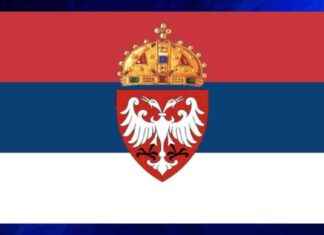Sebastián Piñera, who was president of Chile for two terms, died on Tuesday when the helicopter he was piloting fell into Lake Ranco. He was “a democrat from the start”, as Gabriel Boric, current Chilean president and Piñera’s successor, said in the official statement confirming the news.
Known as “the locomotive” from his beginnings as a senator, this nickname represented him both in his business side and in his political life, during which he personified the democratic alternation of Chile and led the government to right after 20 years of center-left coalition.
Piñera, born in Santiago in 1949, was the third of six children of Magdalena Echenique and José Piñera, founder of the Christian Democratic Party, born from the fusion of the National Falange and smaller conservative and Christian groups. The reasons why the ex-president did not join the military in his father’s party have never been entirely clear; from the beginning he showed an ambiguous attitude towards the figure of Pinochet.
Piñera defended the former Chilean dictator when he was captured in London in 1998; ten years earlier, in the 1988 plebiscite, he had made public his negative vote after showing himself against the permanence of Augusto Pinochet’s military regime in power.
Regarding his business figure, he has been equally irreverent; he ended up earning the nickname of the “Chilean Berlusconi”. Not only were they similar in being the main shareholders of football clubs, but they were among the richest people in their respective countries. Piñera had a fortune estimated by Forbes at about $2.9 billion, the fifth largest in the Latin American country, according to the 2023 ranking.
However, the businessman was not new to politics, since since the restoration of democracy, in 1990, he was a senator and president of the Alliance for Chile, which brought together the National Renewal, the party that sought represent the more moderate right, and the Independent Democratic Union, the Pinochetist heritage of the Chilean right.
After suffering an electoral defeat in the 2005 elections to Bachelet, he was promoted to Moneda in 2009. A month before he was sworn in as president, Chile suffered one of the worst earthquakes in its history, which undoubtedly marked its mandate The earthquake – of magnitude 8.8, in February 2010 – led to the rescue of 33 miners who lived 700 meters underground for 69 days. This catastrophe was projected by the government as a symbol of its mandate, in which it tried to show that, with business logic, things can be done well.
Without making the right-wing turn that his own sector would have liked, he “promoted pioneering laws and public policies in favor of LGTBIQ rights, he gave equal, respectful and gentle treatment to independent organizations”, as recorded by the Integration Movement and Homosexual liberation on social networks, showing their condolences for the death of the former president. In addition, he promoted the Civil Union Agreement for people of the same sex, which would later become law.
Thus, during his first term, he emerged as a leader who was never a traditional Chilean right-winger, historically more conservative; therefore, in his own ranks there were those who looked at him with some distrust.
Months before saying goodbye to La Moneda, he already stated that he did not rule out a future presidential bid. He regained the leadership of the country in 2018, against a weakened center-left and without strong leadership. Michelle Bachelet, who has expressed her condolences, then handed him the presidential armband for four more years, extremely complex years with the accumulation of obstacles.
The first thing he had to deal with was the social outburst of October 2019, in which the demands and unrest of the Chilean people accumulated, an outburst described by Piñera as “a non-traditional coup d’état”.
In addition, he had to deal with the pandemic, against which he applied a business mentality, as described by local media. The former president negotiated the vaccines with the laboratories before his neighboring countries, which brought some calm to the streets for the general inoculation of the Chilean population.
In March 2022, he handed over command to the president of the Front Ampli, Gabriel Boric, who announced three days of national mourning and quoted Piñera’s first words after returning to power in 2018: “Chile is all of us and we must dream, draw and build together”.








